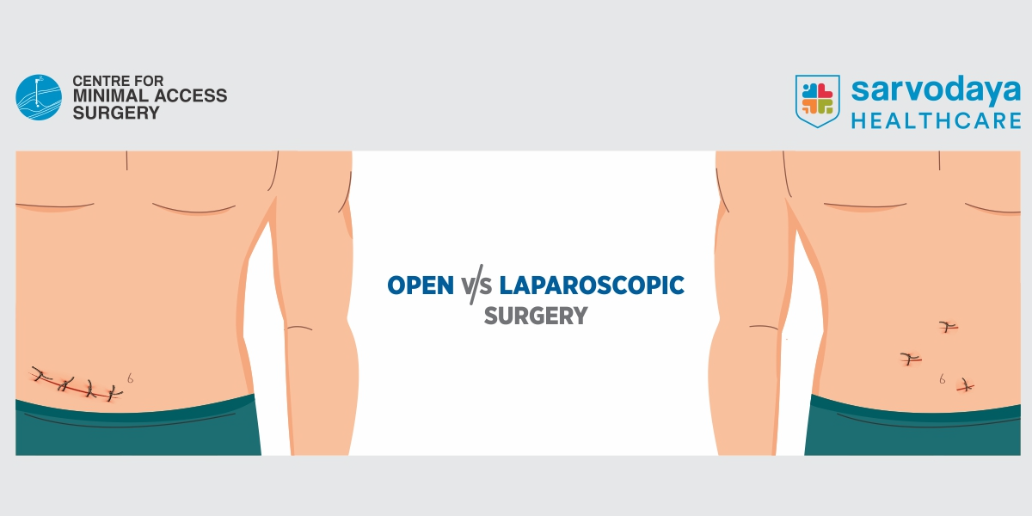Patients who are about to undergo surgery often have many concerns. The most common is related to the pain of the treatment and prolonged recovery time.
But with advanced surgical procedures, these worries have been limited to a certain extent. While your doctor is in the best position to decide the right treatment option, it is imperative for you to understand the whole surgical procedure and its impact on your body.
The two most common types of surgical procedures are:
- Open Surgery
- Laparoscopic Surgery
What is Open Surgery?
Open surgery is the traditional method of surgery where a large incision is made in the patient's body to access the area that needs to be treated.
This type of surgery can be performed for complex procedures and are crucial in the cases where larger incisions are required, like transplants - to extract and replace the damaged organ with a healthy substitute. Open surgery requires a longer hospital stay and an extensive recovery time.
What is Laparoscopic Surgery?
Laparoscopic surgery, also known as Minimally Invasive Surgery (MIS), is a surgical procedure in which operations are performed through small incisions. It is less painful and has a faster recovery time.
There are many different types of laparoscopic surgery and all of them involve making one or more small incisions in the abdomen.
During the procedure, a surgeon inserts a tiny camera, called a laparoscope, through the incision. This laparoscope gives them a clear view of the inside of the body on a video monitor.
Laparoscopic surgery is often used for procedures such as Gallbladder Removal, Gastric Bypass Surgery and Hernia Repair.
How is Open Surgery different from Laparoscopic Surgery?
Several factors differentiate Open surgery from Laparoscopic surgery. Some of the major ones include:- Incisions: One of the major differences between open and laparoscopic surgery is the size of the incision. In open surgery, a single long incision is made, while, in laparoscopic surgery, several small incisions are made in the body.
- Healing: Open surgery usually necessitates a longer stay in the hospital and a longer healing period. Laparoscopic surgery has a shorter hospital stay and recovery time than traditional surgery.
- Risks: Open surgeries could carry a lot of health deteriorating risks; whereas, Laparoscopic Surgeries have no life-endangering risks involved.
Conclusion
Surgery could be minor or major, and each has its own outcome. It is imperative to completely understand the procedure and have clarity about the expenses along with recovery and healing time. Though, the ideal surgery for you depends mainly on the purpose and severity of the condition.
At Sarvodaya, our surgeons aim to provide the best possible surgical treatment and care to the patients. We give a detailed description to the patient & their family about the case, treatment planned and risks involved before the surgery. Our team of highly-skilled and experienced surgeons strives to perform the surgeries with high-end technology and precision. Get in touch with our best surgeons who can help you make the right decision.










